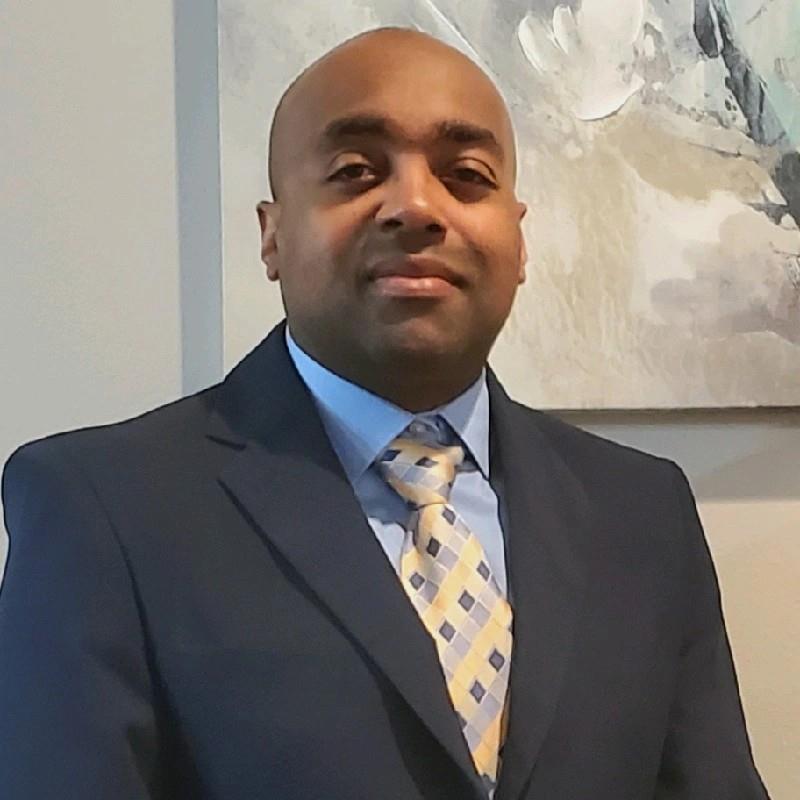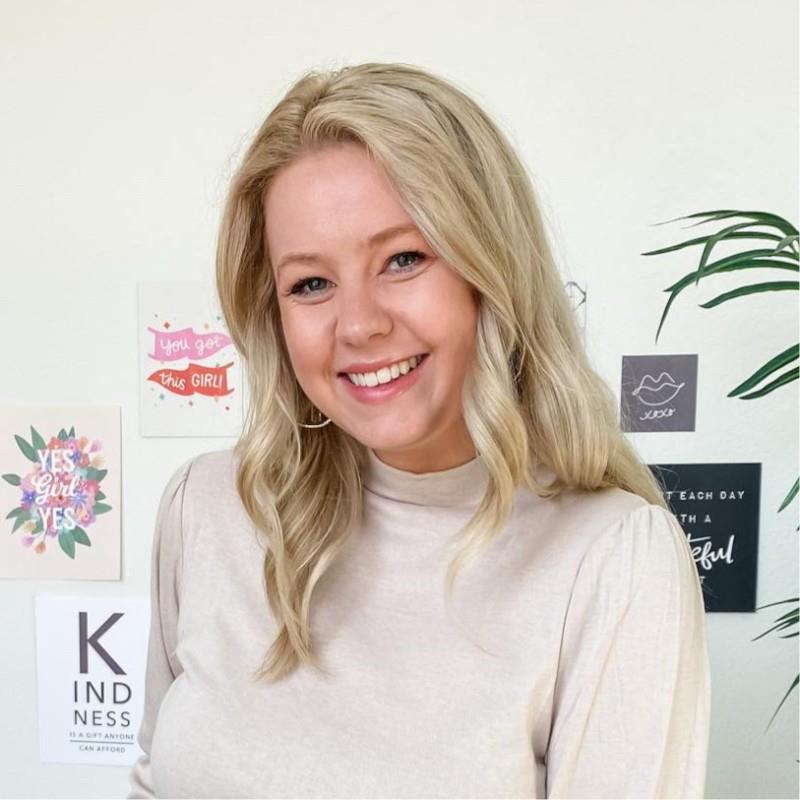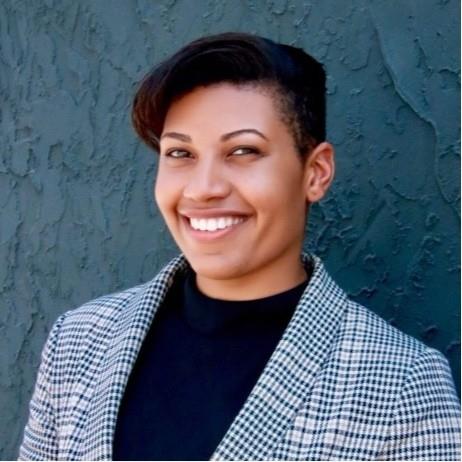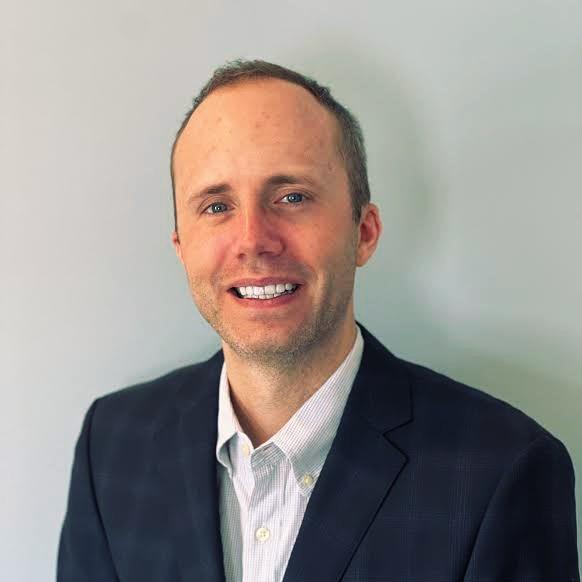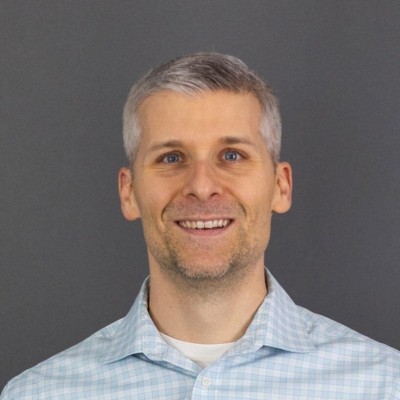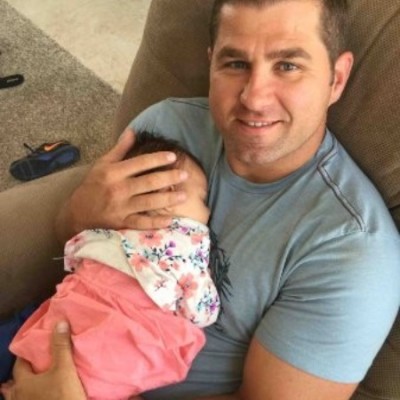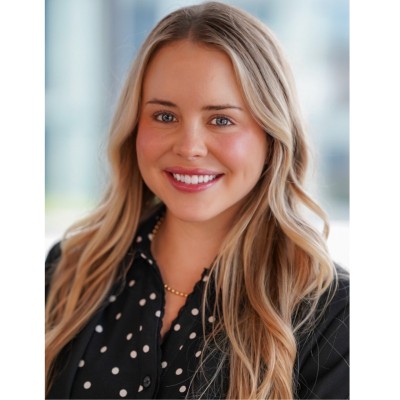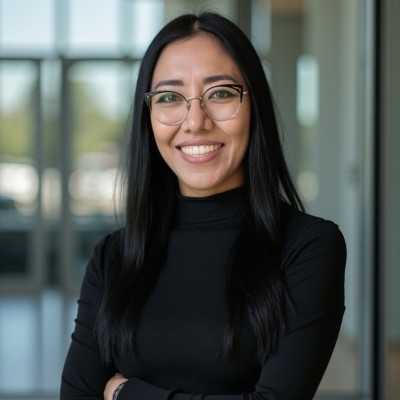Key Account Reps Can Unlock Opportunities in Medical Sales
Jennifer Chavez joins the show to share her unique path through medical sales — from breaking in as a remote sales rep at Medtronic, to driving strategy as a vascular account executive at Cook Medical, to now leading her own consulting firm helping medtech companies build sales teams and win hard-to-access accounts.
She pulls back the curtain on what it’s really like to succeed in roles that go beyond the OR. You’ll hear how remote sales reps add value, why key account roles require a different skill set, and what it takes to balance strategic storytelling with on-the-ground sales execution.
Jennifer also opens up about life as a single mom building a career in this demanding industry, the mindset shifts that fueled her success, and why betting on herself to launch a business was the natural next step.
If you’ve ever wondered how to climb the ladder in medical sales without following the traditional rep-to-manager path, or what it takes to thrive in high-level strategic roles, this conversation is packed with insights you won’t want to miss.
Connect with Jennifer: LinkedIn
Connect with Me: LinkedIn
Love the show? Subscribe, rate, review, and share! Here’s How »
Want to connect with past guests and access exclusive Q&As? Join our EYS Skool Community today!
Watch the episode here:
Or Listen to it on your favorite platform:
Episode Transcript:
00:05 – Samuel Adeyinka (Host)
Hello and welcome to the Medical Sales Podcast. I’m your host, samuel, founder of a revolutionary medical sales training and mentorship program called the Medical Sales Career Builder, and I’m also host of the Medical Sales Podcast. In this podcast, I interview top medical sales reps and leading medical sales executives across the entire world. It doesn’t matter what medical sales industry from medical device to pharmaceutical to genetic testing and diagnostic lab, you name it. You will learn how to either break into the industry, be a top 10% performer within your role or climb the corporate ladder. Welcome to the Medical Sales Podcast and remember, I am a medical sales expert sharing my own opinion about this amazing industry and how it can change your life. First off, tell us what your job was like, what was your role, and give us the whole skinny about it. Is it a team environment role? Is it by yourself role? Do you have you know a city area or do you have multiple states yourself role? Do you have you know a city area?
01:07 – Jennifer Chavez (Guest)
or do you have multiple states? Give us a scoop on what the role is? Definitely so. I had come from Medtronic. I was with Medtronic for about five years. I cut my teeth in medical devices by contracting with Medtronic. So I was a contractor for several years and then they hired me on full-time as a remote sales rep. So I was a contractor for several years and then they hired me on full-time as a remote sales rep. So I was doing more street.
01:29 – Samuel Adeyinka (Host)
So remote sales rep, meaning you were only on the phones.
01:34 – Jennifer Chavez (Guest)
I was on the phones, mostly for those geographically isolated locations or sort of lower priority accounts or high priority accounts where the rep just wasn’t available to do all the touches that he needed to do or she needed to do. So I would help with that remotely. It was more of like a strategic sales type position where I was sort of engaging with data. I was engaging with product launches, things like that, rather than a more traditional field-based role. But I was visiting the accounts about quarterly and going in and not so much supporting procedures because I wasn’t in procedures enough to really have the clinical acumen, but I was in procedures just to understand their workflow, their decision-making flow as well.
02:31 – Samuel Adeyinka (Host)
And what was this position called? It was just called the remote sales rep position.
02:36 – Jennifer Chavez (Guest)
That was the title Remote sales rep. Yeah, it was a brand new team within Medtronic. So they were looking at the cost of a traditional field-based rep versus the amount of administrative work that a field-based rep has to do and they said why don’t we have this remote sales? Team based out of Homesview, minnesota that really tackles the administrative stuff and is a little bit lighter on the field work.
03:02 – Samuel Adeyinka (Host)
So we’re seeing, you know, in the industry, we’re seeing that happen a lot more, and it’s not just medical device now. We’re seeing medical device do this. We’re seeing pharmaceutical do this. I won’t be surprised if you start seeing medical supplies do this, where they have these roles, where you’re pretty much a phone sales rep and you know, maybe you come to account sometimes, but the majority of your day is literally getting access to those hard to see accounts and trying to establish something over the phone. Is that what you pretty much experienced?
03:33 – Jennifer Chavez (Guest)
Exactly, I was teeing up meetings for the rep or teeing up meetings for myself, helping to get new products and, you know, talking about data dissemination, things like that. So absolutely, and now as a consultant, I’m a huge proponent of it because I saw how well that team was able to target.
03:54 – Samuel Adeyinka (Host)
Yeah.
03:55 – Jennifer Chavez (Guest)
Yeah, yeah it was. It was a pretty neat experience, so I absolutely loved that, but did move to Los Angeles.
04:03 – Samuel Adeyinka (Host)
Before you move on, so let’s stay there for a second. How long did you do that role?
04:07 – Jennifer Chavez (Guest)
So I was in that role for about two years.
04:10 – Samuel Adeyinka (Host)
And be honest with us. You know right now there are people listening that might hear this and be like wait a minute, I didn’t know. There’s a phone only or phone majority role where I can be a sales rep and I’m helping to get access to hard to see accounts. What did you love about that role and what would you say was more of the challenge and maybe something you would want to experience again about that role?
04:32 – Jennifer Chavez (Guest)
That’s a really good question. So I, I I love supporting patients, supporting outcomes, but I I’ve never been a big fan of being on call or being in a 12-hour procedure. So in that role there was just less of that time commitment. There was more predictability. It was really consistent. It was a grind. It’s a little mind-numbing to be on the phone all day. Sometimes you just want to get out of the office and visit some people. We, so we did have the option to do that as well. Um, you know the. The. The one thing, though, that that I would. I would have changed about it and it was a really new team, but I was um supporting like 20 field reps, so it was a little bit. It was a huge chunk.
05:25
I had like 250 accounts, it was it was just a huge chunk of work, and it was up to me to kind of like wrangle and prioritize and stuff like that, so that that was definitely a challenge. If I had maybe five reps or 10 reps, that would be more manageable.
05:40 – Samuel Adeyinka (Host)
Wow, wow, okay, okay, I get it Okay. So what did you move on to do? What’s the role that? Uh, I’m not going to give it away. Go ahead. What did you want to go?
05:51 – Jennifer Chavez (Guest)
So I moved on to cook medical and I really did enjoy that strategic accounts view. So I was working with Medtronic uh, you know, with Kaiser um CAMs like their account managers, and I was working at what was the specialty. Peripheral vascular.
06:11 – Samuel Adeyinka (Host)
Peripheral vascular. So you were a remote sales rep in peripheral vascular and then you left to go be to to go be at Cook Medical.
06:22 – Jennifer Chavez (Guest)
Yes, and and I I got the job as a vascular account executive at Cook Medical, which is really like a key accounts role, but it’s like a local key accounts rather than national key accounts.
06:34 – Samuel Adeyinka (Host)
So let’s describe that, jennifer, because you know, I know what that is, but there’s a bunch of people that have no idea what you’re talking about. So give us what is, first of all, what is a vascular? Give us the title of the vascular rep you were. What do they do? Who do they call on? What’s the what’s it like? And then explain the key account portion of that device sales.
06:53 – Jennifer Chavez (Guest)
they really just think about this field person who’s kind of grinding out there supporting cases going from doctor to doctor. But there’s a whole other strata of key accounts or strategic accounts. So these folks are looking more at the integrated delivery network level. So they’re looking at hospital health systems. So I was supporting, like your Kaiser Permanentes, cedars-sinai, pih, cottage Health, those like those larger systems, and building relationships within the system to understand how we could really help create value and streamline, streamline operational efficiency and so. So that means like are we giving you your, your best outcomes? Are we bundling things to make sure that pricing makes sense for the entire organization? Are your high use items? Are we like leveraging that to make sure that we have a long-term relationship? So I was really able to look at things creatively from a high level and that’s really where my niche is and where I really like being, as as being that more strategic partner on the C and D level. So yeah, that’s a little bit more what I did.
08:28 – Samuel Adeyinka (Host)
What’s being sold in the vascular peripheral space Like? We understand now what you’re working with and how you’re doing it. How does that tie back to this product for these procedures and the like?
08:44 – Jennifer Chavez (Guest)
Absolutely. So I was overseeing about five field reps territories and I was helping. So these field reps are really the ones that are on the ground, making the relationships, disseminating data, doing that awesome support work. And then I was taking what, what they knew from from the physicians that they had built those relationships with. So what is what does that population look like? What other competitors are on the shelf? Do we have a lot of SKUs in a particular category that we might be able to help the system manage? So I was really working strategically along with these reps to understand what are your goals, what are your physician goals, what did the patient population look like and how can we really impact health outcomes as an organization? So that was we were working with peripheral vascular reps. So all of the the PTA, angioplasty stents, ir as well, so of like the biliary work as well, coils, peripheral coils, none of the neural stuff and then also aortic. So we were also supporting the aortic endographs and that business as well.
10:10 – Samuel Adeyinka (Host)
So okay, so let’s go real. Example then I’m a rep for Cook Medical in this space. I’ve just sold one of these coils to Dr So-and-so. They are interested, they want to move forward, they’re excited about it. Jennifer steps in Cue. Jennifer, where about?
10:33 – Jennifer Chavez (Guest)
it. Jennifer steps in Cue Jennifer where Cue Jennifer, right anywhere in that sales process. So, particularly talking about coils, I can think of an example where we were at a community hospital in the area and we understood that they were doing a really high volume of coil procedures with a coil that was geez over $1,000 per coil. And we had coils that were, you know, $100 per coil that we wanted to produce value with and exemplify outcomes with, exemplify outcomes with. So I would actually go into the doctor’s office with my rep and I would be able to tell the economic value story while the rep would tell the clinical story.
11:25 – Samuel Adeyinka (Host)
Now is the rep identifying this need and saying, jennifer, oh my gosh, I got to bring you into this account. Or is the company giving you all this data and you’re calling the rep and saying, hey, we need to talk because you’re, one of your accounts is doing A, b and C?
11:40 – Jennifer Chavez (Guest)
Definitely the rep. It was all about my relationship with the rep, so I had to have buy-in from the rep as well and I had to have the rep willing to be a little bit creative, to bring me along to things where they understood that there was an economic story to be told along with the clinical story. And then once I have that stakeholder, the physician stakeholders attention with that economic story, then I can I can go up to supply chain and say, hey, I talked to Dr so and so and he agrees that this may be a good program. And if he’s on like a VAT or a committee that approves products to or kind of approves that supply chain process of getting products in and things like that the value analysis.
12:30
Then we can have a conversation about analyzing the actual economic value of bringing a new product in or replacing products that might be on the shelf already.
12:43 – Samuel Adeyinka (Host)
Wow, so okay. So then, how are you for your role and for you to get compensated when you have that role? You still had to get that rep to talk to you and engage with you and plan something like like so. So, for example, if all the reps refuse to call you or talk with you, your, your hands are tied. I’m toast.
13:05 – Jennifer Chavez (Guest)
Yes.
13:06 – Samuel Adeyinka (Host)
If the reps don’t want to work with me.
13:09 – Jennifer Chavez (Guest)
That would be the worst, the worst case scenario. So having having those reps understand the value that I brought. The worst, the worst case scenario, so having having those reps understand the value that I brought, and also, um, coming in as a sales professional. So I, you know, I started my sales career at JC Penney’s selling suits when I was 19. Good stuff, hard knocks life.
13:29 – Samuel Adeyinka (Host)
Yes, come on, hard knocks hard knocks.
13:31 – Jennifer Chavez (Guest)
You know, I did, I did not, uh, come from the top. You know I, you know, I really, I grinded to get where I was, so so I had those skills. I knew how to talk to people. I know how to talk to people. I know how I know how to. For me, sales is about understanding what someone needs and helping them get what they need.
13:51 – Samuel Adeyinka (Host)
For you. That is what sales. That is the definition. That is everyone’s definition. So you know, I find it interesting that you went from a remote sales rep you bypassed being a sales rep to support sales reps in a key account position. And correct me if I’m wrong, but I always thought key account positions are the type of position that a sales rep would aspire to. Is that true or false?
14:19 – Jennifer Chavez (Guest)
Somewhat A lot of the key account reps are MBAs like myself, so we have a little bit more of that analytical background.
14:27 – Samuel Adeyinka (Host)
Sure.
14:28 – Jennifer Chavez (Guest)
To be able to crunch the numbers that reps do not want to be sitting in front of an Excel spreadsheet for five hours a day, so so that that can be an obstacle for reps to to achieve this, but I did work alongside of former reps as well. Um that that uh wanted to to be there in their career, but a lot of reps you just cannot pull out of the field.
14:55 – Samuel Adeyinka (Host)
Sure, sure, sure. So almost like how a bachelor’s degree is not necessary to be a medical sales rep, but if you have one it’s going to help you a hell of a lot more than if you don’t. Is an MBA not necessary to be a key account manager?
15:10 – Jennifer Chavez (Guest)
but if you have one, you have a better chance of being one than if you don’t account manager, but if you have one, you have a better chance of being one than if you don’t. Absolutely yeah. Yeah, if you have an MBA and if you have any type of analytical experience. I worked as a marketing analyst for a little bit, as a contractor for Medtronic. I wore about five different hats while I was a contractor.
15:30
And it was such a blessing to number one, be trusted by folks to take on completely new things that I hadn’t done before. And then I got all of these amazing capabilities that I have in my tool belt and I can say like, instead of saying I think this is going to be of economic value to your organization, I can say send me all of your use data and I will crunch the numbers and make sure that we have a compelling value analysis story for you.
16:03 – Samuel Adeyinka (Host)
Wow, wow, that’s awesome. I hope you’re enjoying today’s episode and I want to let you know our programs cover the entire career of a medical sales professional, from getting into the medical sales industry to training on how to be a top performer in the medical sales industry, to masterfully navigating your career to executive level leadership. These programs are personalized and customized for your specific career and background and trained by over 50 experts, including surgeons. Our results speak for ourselves and we’re landing positions for our candidates in less than 120 days in top medical technology companies like Stryker, medtronic, merck, abbott you name it.
16:43
Would you run an Ironman race without training and a strategy? You wouldn’t. So why are you trying to do the same with the medical sales position? You need training, you need a strategy and you need to visit evolveyourassesscom, fill out the application schedule some time with one of our account executives and let’s get you into the position that you’ve always dreamed of. What’s awesome about this is you have all these experiences. You were in a remote sales rep position. You got into a key account position Real quick. In the key account position, are you mostly also behind the phones, or are you actually expected to go out and see these key accounts?
17:15 – Jennifer Chavez (Guest)
We are definitely expected to see the key accounts, and that really changed with COVID. What that looks like, the expectation and the hope is that we are going to have face-to-face relationships with a lot of these folks. But COVID made that really hard and things have shifted to to like more of a virtual model.
17:36 – Samuel Adeyinka (Host)
Sure.
17:37 – Jennifer Chavez (Guest)
So so we would. We would always try to have quarterly business reviews with our executives and just make sure that they understood the value that we’re continually providing to them, rather than, you know, only meeting when, when something comes up, comes up, or something like that. So we would definitely try to build those relationships and make sure that we were brainstorming ideas and, on top of any issues like back orders or anything like that, that might affect the entity at a larger level.
18:09 – Samuel Adeyinka (Host)
Got it, and then you leverage all of this to now start a consulting practice.
18:16 – Jennifer Chavez (Guest)
Yes, yes.
18:17 – Samuel Adeyinka (Host)
And that’s what’s happening in the now.
18:20 – Jennifer Chavez (Guest)
And that is what’s happening in the now. Yes, I really really enjoyed working at Cook, but I sought leadership, like in a real sense of creating things, creating new things that haven’t existed before. And also, you know, seeing the statistics behind medical tech device companies that you know a lot of them don’t make it and there’s really impactful medical devices being invented every day and a lot of stuff just doesn’t really thrive in the market. So I felt like, hey, this is my opportunity to get out there.
19:01 – Samuel Adeyinka (Host)
I felt it. This is why I love the world of medical sales because I’m sure there’s other industries you can do this, but in medical sales you can really have an entire career, an entire career and then, when you’re done, having an entirely new career in the exact same field. I mean I did it. I know so many people that have done it. You’re doing it. I mean this is it’s. It’s pretty freaking cool, so let’s talk about it. You know what gave you the confidence to say I’m good at what I do, I make great money, I work for a great company, but I’m still going to bet on myself and leverage my own thing. What were you seeing that made you say you know what I can do. This, let’s go.
19:47 – Jennifer Chavez (Guest)
I think I was. I was seeing in the industry as a whole, I was seeing a lack of a conversation around value and around outcomes and around health equity. So I really I saw a huge opportunity. There’s a lot of low hanging fruit in where you can. You can both impact the lives of many people who are very ill and you can help increase revenues by targeting densely populated or even loosely populated high-disease areas. So I really like go to companies and I like traditional sales processes with you know, targeting those elite KOLs and academic volumes and they’re.
20:56
they’re apt to be KOLs, they’re apt to be key opinion leaders, and we can develop these people and we can bring a little bit more equity to to our strategies. So I saw, I saw the opportunity that was not being tapped and I said, hey, you know, I am, I’m here to, I have the knowledge, I have the capabilities and I’m gonna make this? Happen.
21:19 – Samuel Adeyinka (Host)
Wow, so your business now basically helps companies get access to hard accounts.
21:25 – Jennifer Chavez (Guest)
Yes, yes, that’s a big part of what we do, so I really enjoy building sales teams, building sales strategy and helping medical professionals and medical technology companies understand really how they can escape the traditional paradigm of tapping into established KOLs and established you know maybe more. Look at more diverse pools to grow to grow.
22:05 – Samuel Adeyinka (Host)
So is this? Is this so? Is your company? Do they actually offer like a remote Salesforce with the strategy built in, or is it more of you are reaching out and consulting the head of sales or the VP of sales or whatnot on strategy to try and execute?
22:17 – Jennifer Chavez (Guest)
A little bit of both. So so we we do consult on strategy and so we’ll do like hourly consulting, and but currently we’re we’re looking at building sales teams and building out sales with.
22:33 – Samuel Adeyinka (Host)
Contract sales force.
22:35 – Jennifer Chavez (Guest)
Exactly, exactly Like like we we need. We need a sales team um tell us how to do it. And then we we go in there and and we build up the sales team and make sure that there’s a lot of administrative support within that sales team to make sure that it’s operationally efficient and runs pretty lean.
22:53 – Samuel Adeyinka (Host)
That’s amazing. That is amazing. So you know you’ve had quite the career. Let’s talk about the lifestyle right. You were in a remote sales role. Let’s talk about the lifestyle right. You were in a remote sales role.
23:06
Then you went into the vascular key account position and now you have your own business as a consultant and, I guess, own contract sales force that you’re dishing out to people talk to us about. The reality of your lifestyle is this, is this it. Can you describe your pursuits that I just mentioned as nine to five endeavors, eight to five endeavors, on-call endeavors, and then, if and then, please share with us. Do you have a family? Are you by yourself? Like, how are you making it all work?
23:34 – Jennifer Chavez (Guest)
Oh yeah, definitely so. So I’ve I’ve been a single mom since I was 25 and I’ve been sort of doing this alongside with my. My two kids is my cheerleaders Um, they’re 19 and 20 now.
23:49 – Samuel Adeyinka (Host)
Oh, wow, okay.
23:50 – Jennifer Chavez (Guest)
Yeah, so, um, yeah, so, so we’ve we’ve definitely overcome a lot of challenges in the family to to be able to make this happen. Um, and you know, know, one thing is like that people may not understand is it’s not exactly a nine-to-five job. Anytime you’re going to get into medical device sales or medical technology in general, like, be prepared for 10-hour days that’s pretty much the expectation across the board is that you will, and not every day is going to be a 10-hour day. Some days are going to be lighter. Some days, you know, and not every day is going to be a 10 hour day. Um, some days are are going to be lighter. Some days, you know, if you’re at a convention, you will be working around along the clock for for days on end.
24:31
Um, and, and that’s um, yeah, that that’s kind of the the life is is really dedicating a little bit more time, but but you do get rewarded financially and in terms of of helping other people. It’s really rewarding. So, uh, at at Medtronic, we we worked, you know, eight, eight to 10 hours a day. Was was the norm, and then, as a key or as an account executive and working in key accounts, we we were definitely um working a little bit longer hours, varied hours, so when we would have a request for pricing or a contract renewal that was coming up, that would be a really intense exercise of analytics and cross-functional engagements and things like that. So sometimes the hours were pretty long there and then working for yourself, as you know, is a 24 hour job.
25:36 – Samuel Adeyinka (Host)
I love those. I love those like Instagram ads where people are like I work three hours a day and make $40 million.
25:41 – Jennifer Chavez (Guest)
That’s impossible. That doesn’t’t. You know? Owning your own business never works that way. It shouldn’t work that way and it’s a red flag if anyone tells you right, right, there you go, tell us how it is, please jennifer, absolutely, absolutely.
25:54
Yeah, I’m a big proponent, proponent of um. You know, like you, you have to put in your 10000 hours to get really good at something. So, so putting in those hours as um, as a med, med device professional, is going to help your career and um, and and you do have to be a little bit entrepreneurial. So as an entrepreneur, geez, I’m working a lot of embarrassing amount of hours.
26:20 – Samuel Adeyinka (Host)
I’m working a lot of hours, an embarrassing amount of hours, so I know you’re new to it, but would you say that maybe I’ll just ask it this way the promise of your new pursuit in this consultancy agency would you say that it’s going to exceed whatever you would have done if you stayed a W2 employee.
26:42 – Jennifer Chavez (Guest)
Yes, definitely, I do believe. So I think that it’s going to take some time definitely to exceed, yes, but putting in those hours and making sure to make room for people that have the same passions that I do for value-based healthcare and health equity, that’s yeah. That’s really going to put us ahead. In a few years, when you talk to us, we’ll be doing great.
27:12 – Samuel Adeyinka (Host)
Awesome. So you know people listening to this right now that are in medical sales that might be thinking, hey, I am trying to be like Jennifer. In a nutshell what has been so far because it’s still new to you what’s been the biggest reward in this pursuit of being an entrepreneur and what has been the biggest hands down challenge in this pursuit of being an entrepreneur in Meta I think so, the biggest reward for me.
27:44 – Jennifer Chavez (Guest)
I have a team and being able to. One of the things that I wanted to do in my business was to develop diverse leadership within the medtech industry, so I was able to recruit a couple of diverse MBAs and being able to support their career aspirations is definitely very, very rewarding, and I get to learn about so many cool devices that are being made and seed stage, like the future is now, it’s crazy.
28:18 – Samuel Adeyinka (Host)
There’s such cool things going on out there, it’s like old news. I mean, who knew, who knew?
28:24 – Jennifer Chavez (Guest)
yeah, yeah. So so being able to see these technologies as they’re coming up and being like, wow, this is algorithm changing this is gonna, this is gonna absolutely impact so many people and I get to help bring it to market like that, that there’s nothing more uh rewarding than that for me.
28:41
Um yeah, absolutely. But I think, um being a business develop representative kind of person, for for all of my career, um I I was anticipating a grind to get clients. I was anticipating that I would, I would be on the phone, I would be working my network and but I did not anticipate how difficult and how much of a grind would actually be.
29:10 – Samuel Adeyinka (Host)
So you know what they say. They say you take for entrepreneurship. You take whatever you think the grind is going to be. You multiply it by 10 to get the result that you’re trying to get.
29:22 – Jennifer Chavez (Guest)
That’s about right. That’s about right. Yeah, that’s actually. That’s wise. So I didn’t have that advice ahead of time, but I did realize as I jumped in that you have to have a value proposition and in order to have a value proposition, you have to get some work. You have to have a value proposition and in order to have a value proposition, you have to get some work. So it’s kind of like this, this cyclical thing that happens where you you just have to like be able to talk, talk and be confident in your skills enough to to present a good value proposition. That’s compelling and, you know, have the reputation as a trusted professional in the industry as well. So I think those things having the amazing network that I do is really great as well. So that’s helped me quite a bit in my endeavors. But yeah, just the amount of outreach is pretty astronomical. Love it, I know it is, it is, it’s a lot, it’s a lot.
30:18 – Samuel Adeyinka (Host)
But, like you said, I think another cool thing about it is it is, it’s a lot, it’s a lot. But, like you said, I think another cool thing about entrepreneurship is you know it all swells. So if you start working hard now, it’s going to turn to something, and if you start working bad, it’s going to turn to something. As long as you just keep you, just stay on it, it will continue. Opportunity too Okay. So I got to know how does a single mom manage to make all of this magic happen to the degree that she can then take a step out into the world and say you know what I’m done with working for someone, I’m going to work for myself. Here we go, let’s go. So we want to hear what is your routine. When do you wake up? What do you do? Do you have some kind of process all the way to when you go to bed? Please share, oh, that’s so great.
31:05 – Jennifer Chavez (Guest)
Okay, absolutely I’ll share my routine. So I feel like there’s I’m a big Tony Robbins fan and, yeah, he’s my guy. You know I don’t agree with everything that he says, to be honest, but he has some really great ideas about momentum and about positive thought, really like being integral to what you do. So I start my day with movement. I go for a walk. I live downtown Los Angeles, a lot of people around and I try to connect with folks as I’m walking around and start a little conversation. You know, just like start the day with, with motion and intention, that like hey, we are, we are all in this together, you know, even even the strangers that I pass on the street. We’re all interconnected. And here I am, you know, and here I am. Start starting to to move my body and gain actual physical momentum for my day. So start off with a nice half an hour to an hour walk and then I go home and I meditate.
32:11
I like to do a gratitude meditation, so it’s something where you sort of relax, focus on your breathing and think about the things that you’re you’re grateful for. So every, every morning, I think about my friends and my family and all of the abundance I have in my life and and how lucky I am, and that really kind of sets my tone for the day. Um, and then, and then I, I, like I’m, I’m an hours person, like I. I believe you have to put in your hours, so I’ll dedicate myself. I’ll say, okay, I’m setting aside this.
32:48
I kind of chunk out my work and I take breaks every two hours, go outside, jump rope or, you know, do some yoga in between things, try and keep my mind and my body active, try to keep the momentum going through the day so that I can stay focused on the task at hand. But yeah, chunking out my day and I try and devote a good like 10 hours a day to like heavy, thoughtful work. And yeah, and then, once I’m done with that, you know I always try and take care of my body, eat healthy, connect with my kids, connect with community. That’s really important to me to always be checking in on my family, be going to community events, volunteering, things like that. So, and then sleep I you know there’s a lot of executives out there that are like I sleep two to four hours a night and I’m just like how, how do people? I can’t, I can’t do that.
33:48 – Samuel Adeyinka (Host)
When do you take it in?
33:50 – Jennifer Chavez (Guest)
So about 10 o’clock at night I start winding down and I wake up at about six o’clock. So I try and make sure that I get about eight hours of sleep. I usually only actually like. I have my Apple Watch and it tells me that I sleep for six hours a night, no matter how long I’m in bed. That’s about the amount of time that I actually sleep. So, yeah, it’s kind of like wind down and in the mornings I you know, I take some time to try and like relax. I don’t want to get out of bed like too urgently unless I have something to do, so yeah.
34:28 – Samuel Adeyinka (Host)
Yeah, that’s amazing. Well, thank you for sharing that with us. You know it’s. It’s so cool when I when I anytime I meet a highly productive person that’s gotten a lot done and is able to command life on their own terms, I always want to know what went behind that right. What was the routine, what were the hard nights, what did it look like and what was the discipline you kept up with that allowed you to create everything you’ve created. So, again, thank you for sharing that with us, jennifer.
34:52 – Jennifer Chavez (Guest)
Yeah, absolutely no problem. I feel that it’s a lot to. It is a lot to be a very productive person, and there’s just a lot of thoughts that are going through your head every day and a lot of different things to keep track of, so it is really important to take care of your mind, to take care of your body and in order to do that work, it’s like it’s almost essential.
35:15 – Samuel Adeyinka (Host)
Yeah, those are the facts. I hope you enjoyed today’s episode and remember I have a customized and personalized program that gets you into the medical technology industry as a sales professional or any type of role for that matter. Become a top performer in your position and masterfully navigate your career to executive level leadership. Check out these programs and learn more at EvolvingAssesscom by visiting our site, filling out an application, scheduling some time with one of our account executives and allowing us to get you where you need to be. Stay tuned for more awesome content with amazing interviews on the Medical Sales Podcast.
